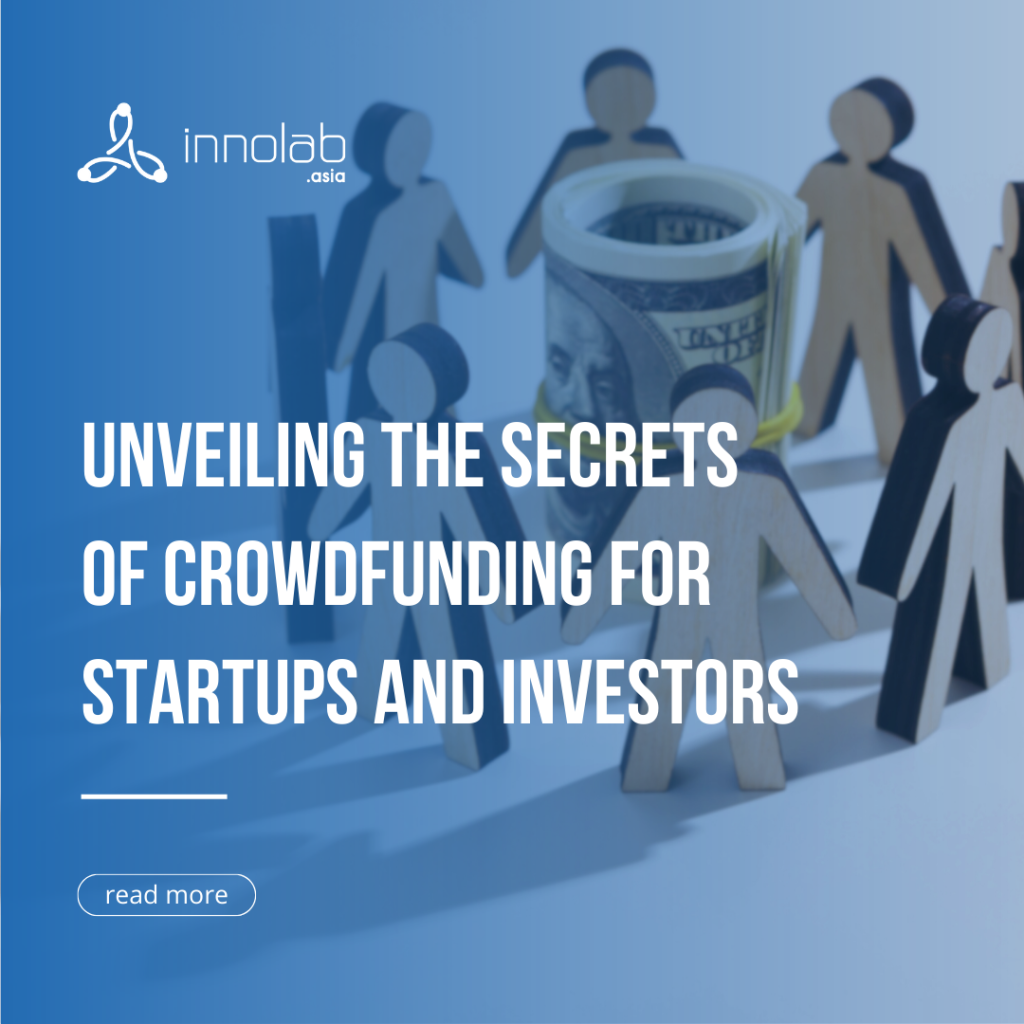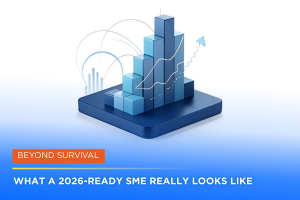Crowdfunding has emerged as a revolutionary method of raising capital for startups, disrupting traditional funding sources and opening doors for both entrepreneurs and investors. This article explores the concept of crowdfunding, its various types, and the benefits and considerations it presents to startups and investors in today’s dynamic business landscape.
What is Crowdfunding?
Crowdfunding, a groundbreaking approach to sourcing capital, is steadily garnering popularity as a potent alternative to conventional financing mechanisms. It fundamentally pivots on the idea of soliciting minor sums from a multitude of individuals, typically via digital platforms. This innovative avenue empowers entrepreneurs to present their concepts or ventures to a global audience, who, in turn, can pledge financial support based on their personal conviction and enthusiasm for the project.
Over the last ten years, crowdfunding platforms have borne witness to millions of initiatives, of which, a modest 23.3% have been successful in hitting their financial targets. Comics and graphic novels (57.2%), gaming (52.9%), and charities (48.4%) have emerged as the most triumphant categories.
Learnbonds.com’s data analysis forecasts that from 2020 to 2023, the global transaction value will witness an annual growth rate of 12%. With this trajectory, the total crowdfunding transaction value is projected to soar to $11.98 billion in 2023, compared to an estimated $8.54 billion for the current year.
Source: Learnbonds
Do you pay back crowdfunding?
For crowdfunding that operates on a donation basis, the company does not need to pay back investors. However many companies offer incentives for early backers such as an advance copy of the product.
Is crowdfunding legal in Vietnam?
The legislative framework for crowdfunding in Vietnam is a work in progress and is not expressly governed under the nation’s existing law. However, specific forms of crowdfunding might be subject to existing regulations concerning fundraising, securities, and investment activities.
Types of Crowdfunding
Just like there are many different kinds of capital round raises for businesses in all stages of growth, there are a variety of crowdfunding types. Which crowdfunding method you select depends on the type of product or service you offer and your goals for growth. The 4 primary types are donation-based, rewards-based, equity crowdfunding, and debt-based crowdfunding.
- Donation-Based Crowdfunding: Broadly speaking, you can think of any crowdfunding campaign in which there is no financial return to the investors or contributors as donation-based crowdfunding. Common donation-based crowdfunding initiatives include fundraising for disaster relief, charities, nonprofits, and medical bills.
- Reward-based crowdfunding: In reward-based crowdfunding, backers contribute funds in exchange for non-financial rewards or perks. These rewards can range from early access to the product or service being funded, to limited-edition merchandise, or personalized experiences.
- Equity crowdfunding: Equity crowdfunding allows investors to contribute funds in exchange for equity or shares in the startup or project. Investors become partial owners and have the potential to earn returns if the company succeeds.
- Debt-based crowdfunding: Debt-based crowdfunding, also known as peer-to-peer lending, involves individuals lending money to businesses or individuals in need. The borrowed funds are repaid with interest over a specified period of time.
Benefits of Crowdfunding for Startups
- Access to Capital: Crowdfunding provides startups with an alternative source of funding, bypassing traditional funding avenues like banks or venture capitalists.
- Idea Validation and Market Demand: A successful crowdfunding campaign serves as validation for the business idea and indicates market demand for the product or service.
- Community Building and Brand Advocacy: Crowdfunding creates a community of early adopters who become brand advocates, spreading awareness and generating support for the startup.
- Early Customer Acquisition: Startups can attract early customers through crowdfunding campaigns, establishing a loyal customer base before the product or service is even launched.
Advantages and Disadvantages of Crowdfunding
| Advantage | Disadvantage | |
| Startup | Access to CapitalMarket ValidationMarketing and ExposureCommunity Building.Feedback and Engagement | Time and EffortPotential FailureLack of ControlIntellectual Property RisksFulfillment Challenges |
| Investor | DiversificationEarly Access and Potential ReturnsTransparency and EngagementSupport for Causes with their personal values and interests.Networking and Learning | High RiskLack of ControlLimited LiquidityDue Diligence ChallengesRegulatory and Legal Risks |
Popular Crowdfunding Websites
Navigating the digital funding landscape has never been more effortless, with a plethora of crowdfunding platforms at your fingertips. Here, we unveil four of the leading websites that could power your business’ growth to unprecedented heights.
Kickstarter: A platform that has been sparking imaginations since 2009, Kickstarter has now catapulted over $5 billion into the dreams of more than 182,000 enterprises. This platform works on a rewards-based donation model, where you curate a captivating story around your project, set an ambitious but achievable monetary target and timeframe, and invite the community to join your journey as backers.
GoFundMe: Not merely a lifeline for charitable causes, GoFundMe also proves itself a staunch ally for businesses. Predominantly a donation-driven crowdfunding platform, it aligns exceptionally well with non-profit organizations and initiatives based on providing services. GoFundMe celebrates the fact that roughly 10% of its campaigns achieve complete funding.
LendingClub: Pioneering a debt-based crowdfunding model, LendingClub offers personal loans that reach up to $40,000 and extends small business financing up to an impressive $500,000. This is an avenue that insists on proven viability – your business should already have clocked one year on the field, with the applicant possessing at least 20% business ownership, and an annual sales revenue benchmark of $50,000.
Indiegogo: This innovative rewards-based platform offers dual funding options – fixed and flexible. While the fixed funding option sets a specific monetary target that, if not met, refunds all donations, flexible funding allows you to retain all contributions regardless of whether you’ve reached your target.
These illustrious platforms present varied approaches to crowdfunding, granting you the liberty to identify and align with the one that resonates most authentically with your business and its unique funding needs.
REFERENCES
Global Crowdfunding Transaction Value to Top $12bn by 2023 | News. (n.d.). FOCUS ON Business. Retrieved July 13, 2023, from https://focusonbusiness.eu/en/news/global-crowdfunding-transaction-value-to-top-12bn-by-2023/3434
Global Crowdfunding Transaction Value to Top $12bn by 2023 | News. (n.d.). FOCUS ON Business. Retrieved July 13, 2023, from https://focusonbusiness.eu/en/news/global-crowdfunding-transaction-value-to-top-12bn-by-2023/3434
Kurani, S. (2020, March 7). What is crowdfunding and how does it work? Republic.co. Retrieved July 13, 2023, from https://republic.com/blog/investor-education/what-is-crowdfunding-and-how-does-it-work
Smith, T., & Li, T. (n.d.). Crowdfunding: What It Is, How It Works, Popular Websites. Investopedia. Retrieved July 13, 2023, from https://www.investopedia.com/terms/c/crowdfunding.asp
Từ start up của Lê Diệp Kiều Trang, nhìn lại mô hình gọi vốn cộng đồng. (2023, July 11). Dân trí. Retrieved July 13, 2023, from https://dantri.com.vn/kinh-doanh/tu-start-up-cua-le-diep-kieu-trang-nhin-lai-mo-hinh-goi-von-cong-dong-20230711001451720.htm



